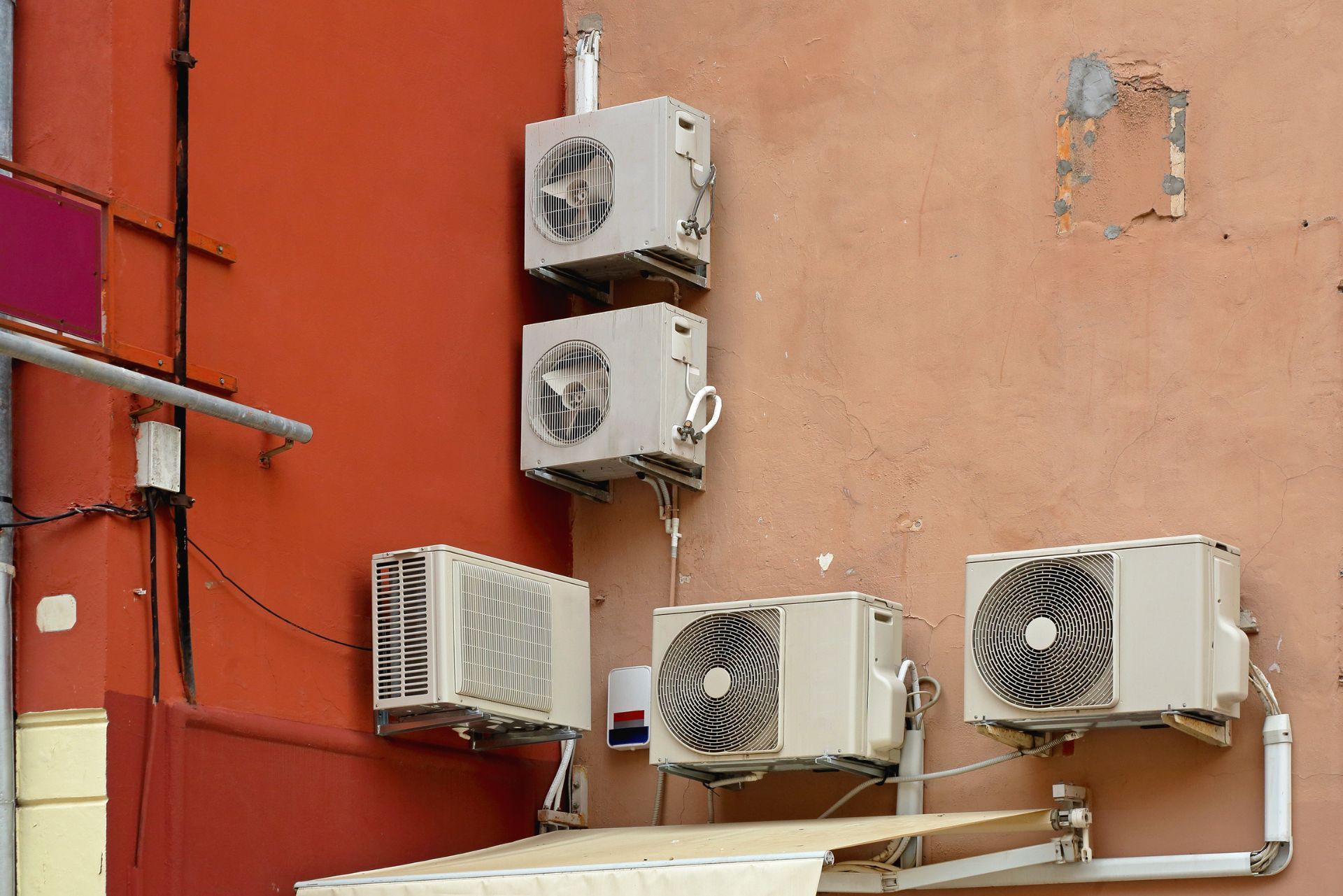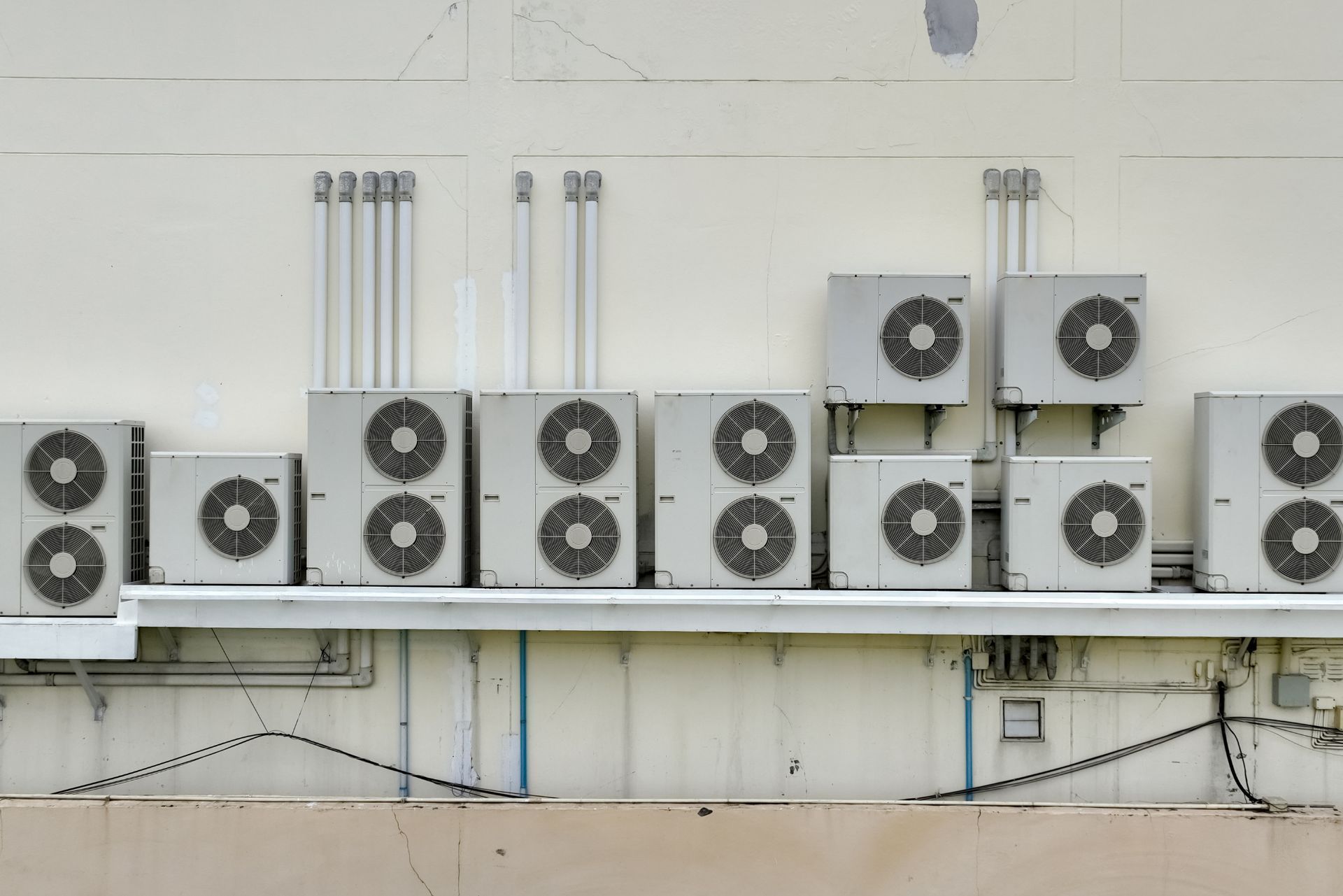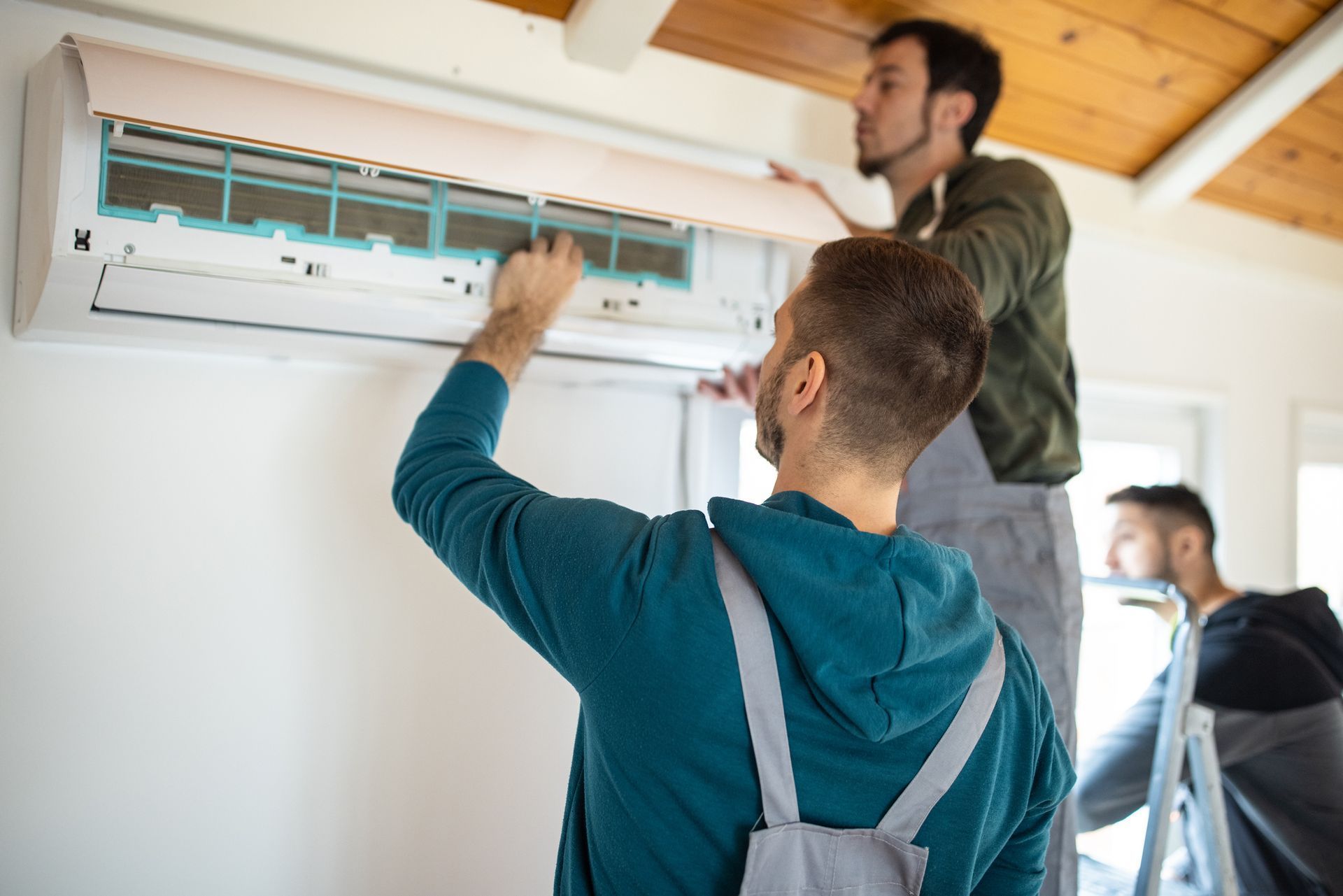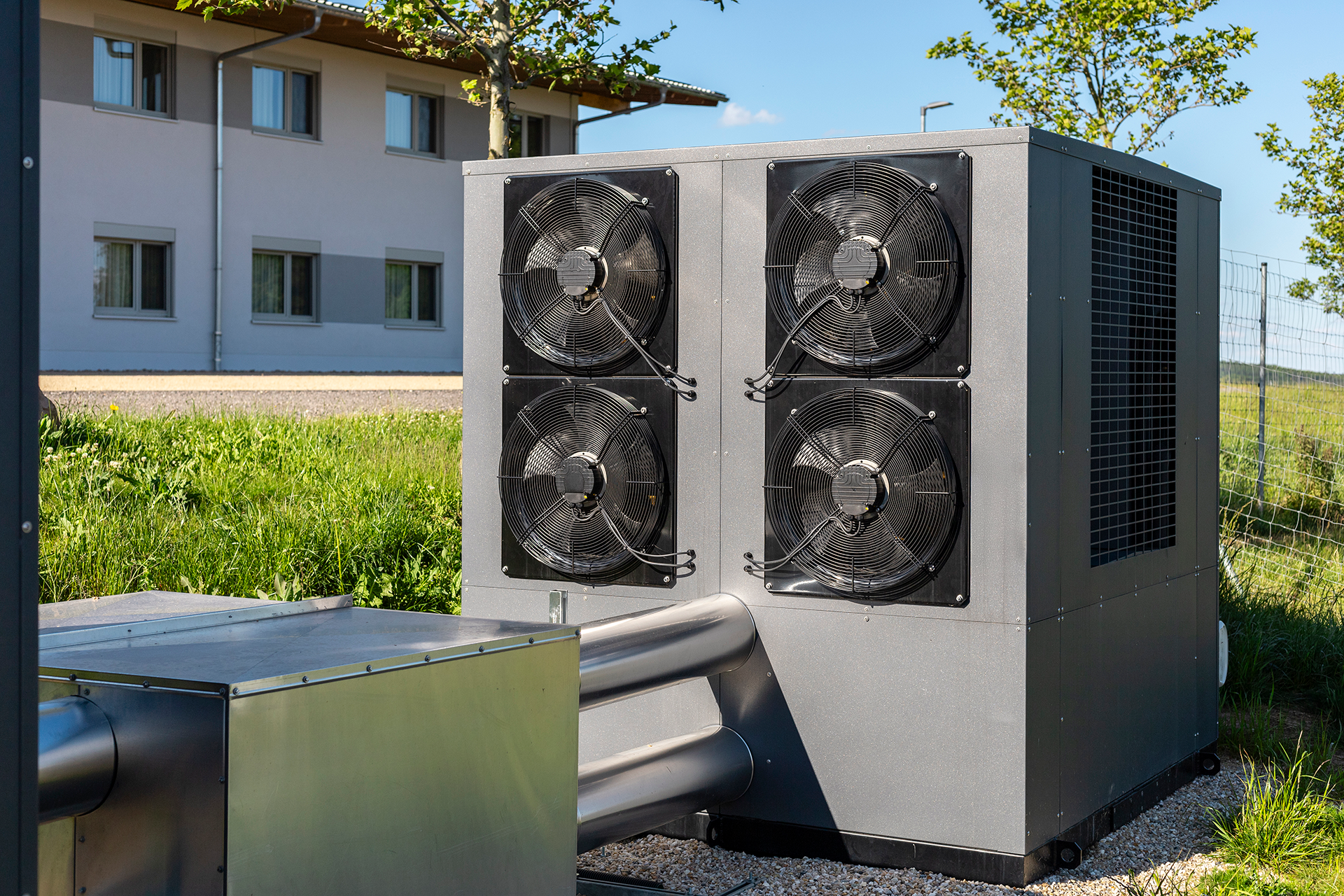Starting an HVAC business means facing a range of risks-from accidental property damage to costly liability claims. Insurance is not just a bureaucratic hurdle; it is a vital shield that protects your business and reputation. For new and small HVAC contractors, finding affordable insurance that fits the unique challenges of the trade can be a game changer. Understanding your options and how insurance impacts your competitive edge is key to building a resilient business.
On average, HVAC contractors pay a median of $68 per month for insurance, with most spending between $25 and $95 monthly. This range makes coverage accessible even for small operations, but the value goes far beyond the price tag. Knowing how insurance safeguards your business and helps build trust with customers is essential for long-term success. SimplyBusiness.com offers a clear breakdown of typical insurance costs that new contractors can expect.
Why Insurance Matters for HVAC Businesses
HVAC work involves more than just technical skill-it carries significant financial risks. Claims related to property damage or bodily injury can easily reach tens of thousands of dollars. Industry data shows HVAC claims average between $25,000 and $50,000 each, with over 25,000 incidents annually costing the sector more than $1 billion in losses. Without proper insurance, these claims could devastate a small business.
Insurance is often misunderstood as red tape, but experts emphasize it as a protective shield. It covers liability, equipment damage, and even employee injuries, reducing the financial burden when accidents happen. This protection allows contractors to focus on quality work without fearing ruinous lawsuits or repair costs. As one industry insider puts it, HVAC insurance isn’t bureaucracy-it’s your shield.
For new businesses, insurance also signals professionalism. Homeowners increasingly choose contractors based on reputation and trust, with 73% selecting HVAC providers due to previous positive experiences-a 44% jump from the year before. Demonstrating coverage can reassure clients that your business is reliable and prepared. Furthermore, in an industry where word-of-mouth and online reviews can make or break a company, having robust insurance coverage can serve as a powerful marketing tool. It not only enhances your credibility but also positions your business as one that prioritizes safety and accountability, which can be a decisive factor for potential clients.
Types of Insurance Essential for HVAC Contractors
Several types of insurance are crucial for HVAC businesses. General liability insurance protects against third-party injuries or property damage. Workers' compensation covers employee injuries on the job. Commercial auto insurance is necessary if vehicles are used for work. Some contractors also invest in professional liability insurance to cover errors or omissions.
Choosing the right combination depends on your business size, services offered, and local regulations. Small businesses often start with a basic package that balances cost and coverage, then expand as they grow. Understanding each policy’s scope helps avoid gaps that could leave you exposed. Additionally, many HVAC contractors overlook the importance of equipment breakdown insurance, which can cover costly repairs or replacements for essential tools and machinery that may fail unexpectedly. This type of coverage ensures that your operations can continue smoothly, even when faced with unforeseen equipment issues, thereby safeguarding your bottom line and maintaining client trust.
HVACInsure is fully licensed and permitted to sell contractor and commercial insurance in USA.
We proudly serve clients throughout the United States and maintain partnerships with local Texas insurance carriers to ensure HVAC professionals receive compliant, affordable, and comprehensive coverage that meets project and regulatory requirements.
Finding Affordable Insurance Without Sacrificing Coverage
Cost is a top concern for new HVAC businesses, but affordability should not come at the expense of adequate protection. The median monthly insurance cost of $68 is manageable for many, but rates vary based on factors like location, business size, and claims history.
Shopping around and comparing quotes is essential. Some insurers specialize in contractor coverage and offer tailored packages that reflect the real risks HVAC businesses face. Bundling policies, such as combining general liability with commercial auto coverage, can also reduce premiums.
Small businesses should also consider the impact of health insurance costs. A 2025 report highlights how health insurance payments place heavy financial pressure on small businesses, affecting their survival. Affordable health plans through ACA Marketplaces have helped 3.3 million small business owners and self-employed adults gain coverage, easing this burden somewhat. Exploring these options can help HVAC contractors manage overall expenses while protecting their workforce.
Moreover, understanding the specific needs of your HVAC business can lead to more informed decisions when selecting insurance. For instance, businesses operating in areas prone to extreme weather may require additional coverage for equipment damage or liability related to storm-related incidents. By assessing these unique risks, contractors can better tailor their insurance policies, ensuring they are not overpaying for unnecessary coverage while still being adequately protected.
How Insurance Can Become a Competitive Advantage
Insurance is more than a safety net—it can be a selling point. Contractors who clearly communicate their coverage and liability protections stand out in a crowded market. Transparency builds trust, which is increasingly important as homeowners prioritize experience and reliability when choosing HVAC providers.
According to hvacinsure.com, proactively discussing insurance coverage differentiates contractors from competitors who may be less forthcoming. This openness can lead to more referrals and repeat business, as customers feel confident they are protected.
Service quality remains the most significant driver of customer retention, with 16% of customers citing it above price, coverage options, and reputation. Insurance supports this by enabling contractors to handle claims professionally and maintain client relationships even when problems arise. Additionally, showcasing robust insurance coverage in marketing materials can attract clients who are particularly risk-averse, as they may feel more secure knowing that their contractor is fully insured against potential mishaps. This proactive approach not only enhances credibility but also fosters long-term relationships built on trust and reliability, which are essential in the HVAC industry.

Balancing Coverage Needs and Budget Constraints
New HVAC businesses often face tight budgets. Prioritizing essential coverage while avoiding unnecessary extras is key. General liability and workers' compensation should be non-negotiable, as they cover the most common and costly risks. These foundational policies protect against claims related to bodily injury, property damage, and workplace injuries, which can be financially devastating for a small business.
Optional coverages like equipment breakdown or professional liability can be added later as the business grows. Some insurers offer customizable policies that let contractors adjust limits and deductibles to fit their financial situation. This flexibility allows HVAC businesses to tailor their insurance to their specific needs, ensuring that they are not overpaying for coverage they do not require at the outset. Additionally, as the business evolves, so too can its insurance needs, making it crucial to regularly review and adjust policies.
Understanding the claims history and risk profile of your business helps in negotiating better rates. Maintaining a clean safety record and investing in employee training can reduce premiums over time. Moreover, implementing safety protocols and conducting regular risk assessments not only enhances workplace safety but also demonstrates to insurers that your business is proactive about minimizing risks, which can lead to further discounts on premiums. Building relationships with your insurance agent can also provide insights into potential savings and coverage options that align with your business goals.
Sample Insurance Cost Comparison
| Coverage Type | Basic Package | Extended Package |
|---|---|---|
| General Liability | $25 - $50 / month | $40 - $70 / month |
| Workers' Compensation | $20 - $40 / month | $30 - $60 / month |
| Commercial Auto | $15 - $30 / month | $25 - $45 / month |
| Professional Liability | Optional | $20 - $35 / month |
| Total Estimated Monthly Cost | $60 - $120 | $115 - $210 |
This comparison illustrates how starting with a basic package can keep costs manageable while providing essential protection. As businesses expand or take on larger projects, upgrading coverage becomes a smart investment. Additionally, it’s important to consider the potential financial impact of not having adequate coverage. For instance, a single lawsuit could wipe out years of profits, making it clear that investing in comprehensive insurance is not just a cost, but a critical component of sustainable business growth.
Furthermore, as the HVAC industry continues to evolve with new technologies and practices, staying informed about emerging risks is vital. For example, the rise of smart HVAC systems introduces new liability concerns related to data security and system failures. By proactively seeking out insurance options that address these modern challenges, HVAC businesses can safeguard their operations against unforeseen events and ensure long-term viability in a competitive market.
Tips for New HVAC Contractors to Secure the Best Insurance Deals
Getting the right insurance at the right price requires a strategic approach. Here are practical tips to help new HVAC contractors:
- Shop Around: Obtain multiple quotes from different insurers. Look for companies with experience in contractor insurance.
- Bundle Policies: Combining general liability, workers' comp, and commercial auto insurance often lowers total premiums.
- Maintain Safety Standards: A strong safety record reduces risk and can lead to discounts.
- Review Coverage Annually: As your business evolves, adjust policies to avoid overpaying or being underinsured.
- Leverage Industry Resources: Use online guides and expert blogs to understand coverage nuances and emerging trends.
For example, FieldFactor’s blog offers insights into common claim drivers and how insurance can protect against them. Staying informed empowers contractors to make smarter insurance decisions. Additionally, networking with other HVAC professionals can provide valuable insights into which insurance providers offer the best rates and coverage options tailored specifically for the HVAC industry. Consider attending trade shows or local industry meetups to build these connections.
Health Insurance Considerations for Small HVAC Businesses
Beyond business insurance, health coverage for owners and employees is a critical concern. Small businesses face significant financial pressure from health insurance costs, which can threaten their survival. Access to affordable health plans through ACA Marketplaces has improved, with millions of small business owners gaining coverage. Moreover, many contractors are exploring options like Health Reimbursement Arrangements (HRAs) or Qualified Small Employer Health Reimbursement Arrangements (QSEHRAs) to provide their employees with more flexibility in choosing their health plans while managing costs effectively.
Offering health insurance can also boost employee retention and satisfaction, which is vital in a skilled trade like HVAC. Balancing health benefits with other insurance needs requires careful budgeting but pays off in workforce stability. Additionally, educating employees about their health insurance options can foster a culture of health and wellness within the company, leading to reduced absenteeism and increased productivity on the job. As the HVAC industry continues to evolve, staying proactive about health insurance and employee benefits will be essential for attracting and retaining top talent.

What to Remember When Choosing Insurance for Your HVAC Business
Insurance is an investment in your business’s future. It protects against costly claims, builds customer trust, and can even provide a competitive advantage. For new and small HVAC contractors, affordable options exist that deliver meaningful coverage without breaking the bank. Understanding the various types of insurance available is crucial; for instance, general liability insurance covers third-party bodily injury and property damage, while professional liability insurance protects against claims of negligence or failure to deliver services as promised. Each type of coverage plays a vital role in ensuring that your business can withstand unexpected challenges.
Focus on the essentials first, shop smart, and communicate your coverage clearly to clients. This approach not only safeguards your business but also helps establish a strong reputation in a market where experience and trust increasingly drive customer decisions. Clients are more likely to choose a contractor who can articulate their insurance coverage confidently, as it reflects professionalism and attention to detail. Additionally, consider bundling your policies with the same insurer; this can often lead to discounts and simplified management of your insurance needs, making it easier to keep track of renewals and claims.
Remember, the cost of insurance is a small price to pay compared to the financial impact of a single major claim. Prioritize protection, and your business will be better positioned to grow and thrive. As your HVAC business expands, regularly reassess your insurance needs to ensure that your coverage evolves alongside your operations. This proactive approach not only mitigates risks but also demonstrates to your clients that you are committed to maintaining high standards of service and safety. Engaging with an insurance advisor who specializes in the HVAC industry can provide tailored insights and help you navigate the complexities of coverage options, ensuring you have the right protection in place as your business scales.
Frequently Asked Questions
Q: How much does HVAC contractor insurance typically cost?
A: The median monthly cost is around $68, with most contractors paying between $25 and $95 per month depending on coverage and location.
Q: What types of insurance are essential for HVAC businesses?
A: General liability, workers' compensation, and commercial auto insurance are essential. Professional liability may be needed depending on services.
Q: Can insurance help me win more HVAC clients?
A: Yes. Being transparent about your insurance coverage builds trust and can differentiate you from competitors.
Q: Are there affordable health insurance options for small HVAC businesses?
A: Yes. Many small business owners access affordable health plans through ACA Marketplaces, which can ease financial pressure.
Q: How can I lower my HVAC insurance premiums?
A: Maintain a good safety record, bundle policies, shop around for quotes, and adjust coverage as your business changes.
Q: Is insurance really necessary for a home-based HVAC business?
A: Absolutely. Even home-based businesses face risks like property damage and liability that require proper insurance protection.

About The Author: James Jenkins
I’m James Jenkins, Founder and CEO of HVACInsure. I work with HVAC contractors and related trades to simplify insurance and make coverage easier to understand. Every day, I help business owners secure reliable protection, issue certificates quickly, and stay compliant so their teams can keep working safely and confidently.
Recognized by National HVAC Trade Associations
These trusted organizations set best practices and standards that carriers rely on when underwriting HVAC risks.
Membership signifies adherence to HVAC industry standards and contractor best practices.
Reviews
HVAC Contractor Reviews of
We're trusted by HVAC contractors throughout the US. Check out what our clients have to say about HVACInsure:
Coverage for Crews, Vehicles, and Tools
Insurance for HVAC Contractors
We provide business insurance designed for HVAC contractors. These policies protect your crew, vehicles, and tools while helping you meet project requirements. Every policy is explained clearly and delivered quickly so you can work without delays.
Resources
Insurance Tips for HVAC Contractors
Our blog is built for contractors who want fast answers. Each article covers common questions and risks in under five minutes of reading.
Frequently Asked Question
Common HVAC Contractor Insurance Questions
These FAQs address common contractor questions. As HVACInsure grows, we will update this section with real client experiences and answers.
Why should an HVAC contractor use HVACInsure instead of a general agency?
Specialists understand jobsite requirements, certificate wording, and common endorsements for HVAC work. You get cleaner paperwork, faster approvals, and coverage that fits how your crews operate.
This reduces delays at the gate, avoids gaps, and helps you pass compliance checks the first time.
How fast can I get a Certificate of Insurance (COI)?
Most standard COIs are issued the same business day after binding or updates. If you need additional insured, primary/non-contributory, or waiver language, we prepare it correctly the first time.
Our goal is simple: get your crew on site without paperwork delays.
What coverages do HVAC contractors usually need?
Core policies include General Liability, Commercial Auto, Workers’ Comp, Property/Tools, Inland Marine, and Umbrella. Many projects require higher limits and specific endorsements.
We align your coverage with contract terms and explain each choice in plain language.
Will my tools and scheduled equipment be covered in vans or on jobsites?
Yes. Inland Marine (tools and equipment) can cover items in transit, stored in vehicles, or staged on site.
High-value items can be scheduled, and limits can match your daily field use to keep work moving.
Can I lower my premium without weakening protection?
Often, yes. Clean driver lists, accurate payrolls, safety programs, and bundling policies can help.
We review your profile, request carrier credits, and adjust limits and deductibles to control cost while meeting project requirements.
What should I do after a loss?
Contact us right away so we can file with the correct carrier and set expectations. We guide documentation, next steps, and follow-ups until closure.
Fast reporting and clear records help resolve claims sooner and keep your team focused on work.

Still have questions?
Can’t find the answer you’re looking for? Please chat to our friendly team!
Contact Us








